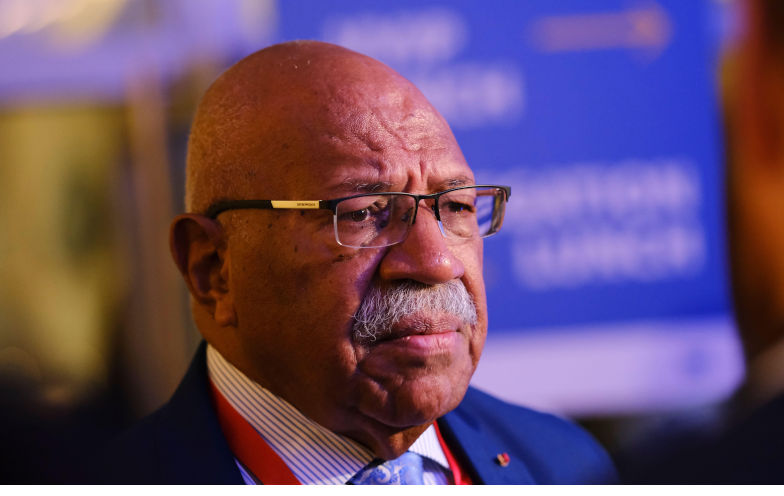The FICAC Commission of Inquiry fiasco in Fiji
June 20, 2025
What started out as a trivial story barely worthy of public attention has grown into a full-blown crisis for the Sitiveni Rabuka-led government in Fiji.
A Commission of Inquiry (COI) report into the appointment of Barbara Malimali as head of the Fiji Independent Commission against Corruption (FICAC) has cost the country’s Attorney-General Graham Leung his job, embroiled Fiji’s Law Society in an acrimonious feud and exacerbated tensions in the governing coalition.
The country’s Chief Justice, Salesi Temo, is allegedly among those accused by the COI (though, at the time of writing, the report has not been publicly released). Worryingly, given Fiji’s history of coups in 1987, 2000 and 2006, military chief Jone Kalouniwai has visited the Prime Minister’s office reminding the nation of his constitutionally-bequeathed responsibility for the “well-being of Fiji and its people”.
Elected in the wake of 16 years of authoritarian rule under former military commander Frank Bainimarama, the multi-ethnic coalition government that emerged from the election of December 2022 initially promised a major transformation in Fiji’s political landscape. Press censorship was halted, discriminatory policies were reversed and repression of the opposition was ended. On the campaign trail, politicians in Rabuka’s Peoples Alliance Party had their antennas finely tuned to popular disquiet. Rabuka himself appeared on TikTok videos to allay the concerns of Fiji’s minority population of Indian descent about the opposition assuming government. Once in office, that sensitivity to public opinion rapidly evaporated. A sequence of public relations disasters has dogged Fiji’s new coalition government, including poorly handled and subsequently reversed cabinet reshuffles in October 2023 and April 2024 and an extremely unwise decision by MPs to award themselves pay increases in May 2024.
The latest debacle arose after Barbara Malimali was arrested on the first day of her new job as FICAC commissioner at the behest of her deputy, Francis Puleiwai, in September 2024. Puleiwai said Malimali was herself under investigation for abuse of office, purportedly for conflicts that emerged while she was in her previous job as chair of the Electoral Commission. Leung confirmed Malimali as lawfully appointed by the appropriate authority, the Judicial Services Commission. He said Puleiwai had a conflict of interest since she herself had unsuccessfully applied to become FICAC commissioner. Rabuka responded by appointing a Commission of Inquiry headed by Supreme Court judge David Ashton-Lewis.
Opinions are starkly divided about what ensued. The judge himself interpreted the Malimali appointment as an attempt to suppress FICAC investigations into crimes committed by senior politicians. So too did the opposition. Others saw it as intended to clean up a rogue organisation nurtured during the Bainimarama years as a vehicle for chasing political opponents. A generation of younger civil servants emerged during that period, who grew accustomed to punitive attacks on public figures, particularly if these served the interests of the pre-December 2022 ruling dyarchy of Bainimarama and his Attorney-General Aiyaz Sayed-Khaiyum. Oddly, during its hearings, the Commission paid great attention to evidence given by die-hard opponents of the current Fiji Government living overseas, with Ashton-Lewis indicating a willingness to accept as evidence what he called “hearsay on hearsay”.
As the allegations swirled, Rabuka responded by first suspending Malimali and sacking his attorney-general, and then, a few days later, it was announced that the president had terminated Malimali, potentially ensuring new court battles ahead because the “independent” FICAC may be insulated from such executive action.
Ashton-Lewis initially emphasised the confidentiality of the commission’s deliberations which, if they unearthed evidence of wrongdoing, would be followed by police investigations and court convictions. Yet, after lodging his report, but before it had been made public or even circulated to those accused of misconduct, the judge made public allegations against senior politicians, besmirching the reputations of “nine people” who he said were guilty of perjury and perverting the course of justice. In a lengthy interview on Australian radio, the judge openly attacked a “wannabe prime minister”, widely believed to be Deputy Prime Minister Manoa Kamikamica, who he said “pretends loyalty to the prime minister – smiling to his face while stabbing him in the back”. Another Deputy Prime Minister, Biman Prasad, leader of the allied National Federation Party, is also accused of misdemeanours. Extensive video recordings of the COI proceedings have been leaked on social media. Ashton-Lewis said he had been tasked by Rabuka to expose the “crocodiles in the pond”. For breaching confidentiality requirements, the Fiji Law Society called on him to resign from the Supreme Court.
The COI controversy arises at a critical juncture, with the Supreme Court due to rule on the legal status of the country’s 2013 Constitution in August and with Fiji drawing closer to the next election, scheduled for 2026 or, at the very latest, February 2027. By appointing Ashton-Lewis to head a COI and allowing him to speak publicly about the contents of his report thereafter, Rabuka has damaged his own governing coalition and given oxygen to his opponents. Whether he can draw his party back together as the campaign gets into full swing, or sustain his 2022 pre-election alliance with the multi-ethnic NFP, remains to be seen.
Republished from Devpolicy Blog, 16 June 2025
The views expressed in this article may or may not reflect those of Pearls and Irritations.

